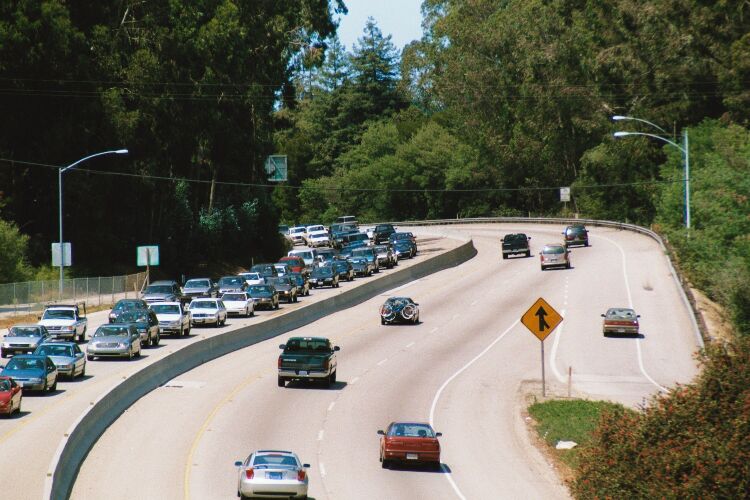Little Steps Big Impact

You usually can’t see it, but the Omaha- Council Bluffs metro area has a problem with air quality, especially during the warmer spring and summer months. It is ground-level ozone. Whether working, playing, or exercising outside, the quality of the air we breathe impacts the quality of life for our families, businesses, health and even future economic development.
Ozone located six miles up in the second layer of the atmosphere helps protect us from harmful UV rays. Ozone at ground-level ozone is a pollutant that affects our health, especially people with heart and lung conditions. Ozone forms when nitrogen oxides from fuel combustion combine with volatile organic compounds, such as fumes from gas and other solvents, and “cook” in the summer heat. Vehicle emissions are one of the leading creators of ground-level ozone.
On October 1, 2015, the Environmental Protection Agency (EPA) issued new air quality standards and tightened the ozone standard. The updated standard requires metropolitan areas to have ground-level ozone of no more than 70 parts per billion (ppb), a reduction from the previous standard of 75 ppb.
On an average hot day, like we’ve been experiencing lately, the Omaha-Council Bluffs metropolitan area is close to exceeding this new standard for ground-level ozone. If the metro area would end up falling below federal air quality standards and being in “non-attainment,” it would bring stricter pollution controls such as increased car ownership costs, vehicle inspections, more industry regulation and increased paperwork and reporting for businesses.
The Metropolitan Area Planning Agency (MAPA) runs the Little Steps Big Impact campaign that aims to raise awareness about the ozone problem through education.
Just because you can’t see ground-level ozone doesn’t mean it isn’t there. As stewards of our quality of life we each need to do what we can to help.
We all can be a part of the solution to reduce ground-level ozone by taking Little Steps which make a Big Impact.
By considering the consequences and taking small steps, together we will make a big difference in air quality. This means having a real impact on adult and child respiratory issues, which can reduce health costs.
“Little Steps” you can take that can have a “Big Impact”:
You don’t have to give up your usual mode of transportation entirely. Drive smarter. Combine errands, carpool to social events. Only drive when you have to. Consider using alternative transportation by taking the bus, biking, or walking instead of driving by yourself in your car. Do this for free with TravelSmart!
. When refueling your vehicle, don’t fill up your tank past the click. Do fill your tank during the cooler parts of the day so fumes can disperse overnight and.
. Choose cleaner-burning renewable biofuels like ethanol and biodiesel when fueling your vehicle. All vehicles can use E10. FlexFuel vehicles can use E10, E15, E30 and E85.
. Avoid idling your vehicle. Even 30 seconds uses more fuel than stopping and starting the engine.
. Go electric or manual with mowers, leaf blowers and trimmers if possible or use gas-powered lawn equipment during the cooler parts of the day. Gas-powered mowers release as much as 25% unburned gasoline in the air.
. Keep lids tightly on paints and solvents.
Material above provided by MAPA and used with permission.
